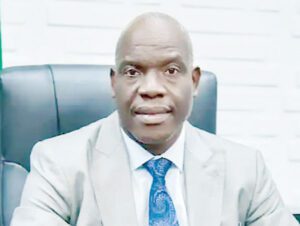
ECREEE, Power Ministry urge private sector investment in green hydrogen
The ECOWAS Centre for Renewable Energy and Energy Efficiency (ECREEE) and the Federal Ministry of Power have called for increased private sector investment in green hydrogen opportunities.
They spoke at the opening of a two-day Regional Capacity Building Workshop of ECOWAS Private Sector Actors on Green Hydrogen, on Thursday in Lagos.
The event was organised by ECOWAS Commission-the ECREEE, the West African Sun Service Centre for Climate Change and Adapted Land (WASCAL) and the German Ministry of Education and Research.
Declaring the workshop open, Mr Temitope Dina, Assistant Director, Federal Ministry of Power, described as collective the regional journey toward a sustainable and green future.
Dina said: “We are united by a shared vision to harness the immense potential of green hydrogen to drive economic growth, energy security and environmental sustainability across West Africa.
“The journey to this point has been marked by dedication, collaboration, and a clear understanding of the pivotal role green hydrogen will play in our energy future.
“Green hydrogen stands at the forefront of the global transition to clean energy.
“It offers the promise of reducing carbon emissions, diversifying our energy sources, and fostering innovation.
“In our region, with its abundant renewable energy resources, green hydrogen could be a game-changer.”
According to him, green hydrogen can stimulate local industries, create jobs, and provide a significant boost to our economies.
Dina added, “Our success will not solely depend on the technical aspects of green hydrogen but also on our ability to work together as a region.
“Collaboration and shared learning will be key to overcoming the barriers we face and to maximising the benefits of green hydrogen for all our nations.
“The transition to a green hydrogen economy is not just a technical challenge; it is a chance to redefine our energy landscape and build a more sustainable future for generations to come.”
Speaking, the Regional Coordinator for Renewable Energy and Green Hydrogen at the West African Sun Service Centre for Climate Change and Adapted Land (WASCAL), Dr Bruno Korgo, said that the ECOWAS region had a huge potential in terms of renewable energy including solar, wind, hydro among others.
According to Korgo, in the West Africa Green Hydrogen Policy, the target is for West African region to be able to produce by 2030, 0.5 million tons of green hydrogen per year and by 2050, 10 million tons per year.
The coordinator, who noted that the policies had been adopted by heads of state in the region, said that government and private sector had to join hands to achieve the goals.
Korgo said that green hydrogen had been considered in all the energy strategies all over the world as a vector for decarbonising a lot of sectors across the world.
Also speaking Sustainable Energy Policy Officer, ECREEE, Mr Hyacinth Elayo said that the ECOWAS region had adopted ambitious targets within the framework of the organisation’s regional policy for green hydrogen and strategy framework.
“We want to develop millions of tons of green hydrogen, at least three scalable clusters within the ECOWAS region and generates at least three to five billion dollars of investments in the green hydrogen space.
“This workshop is basically to bring this policy home, to work with the private sector to help implement these ambitious targets.
“Our role is to create an enabling environment for investments, but the private sector really are the engine and the growth drivers.
“They are our soldiers in the field and our objective, basically, for this workshop is to ensure that we are able to interact with them, especially the key industries that are present here.
“We want them to actually champion this policy and help develop investment projects that can drive green hydrogen in the ECOWAS region and that can also catalyse the sector,” he said.
According to him, West Africa has a close proximity to the demand centres in Europe and there is no reason the ECOWAS should not position itself to tap into the multi-billion dollar industry.
The agenda included a range of topics crucial to advancing our green hydrogen goals, as well as technological innovations, policy frameworks, and investment strategies.




